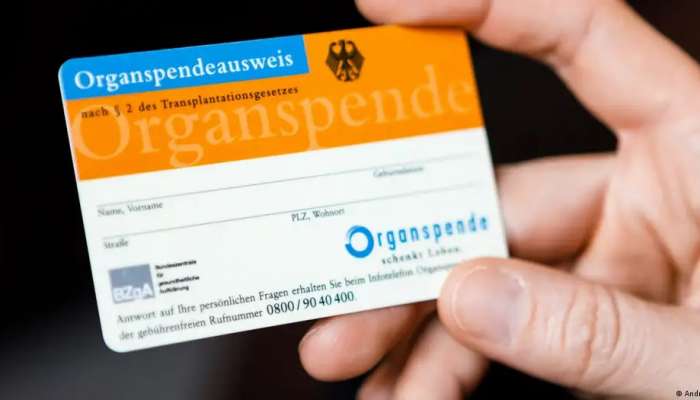
Berlin: People in Germany can sign up to in an online registry to indicate their willingness to donate organs after their death.
Until now, people were only able to record such decision on paper or on an organ donor card. While they will still be able to do so in the future, the German Health Minister Karl Lauterbach has warned that this risked losing or not finding such papers.
The new registry is not only supposed to make it easier for doctors to quickly and reliably clarify a potential willingness to donate, but "above all, it is intended to relieve relatives from making a difficult decision in an emergency," said Lauterbach.
The registery was introduced as part of a law that the Bundestag, the German lower house of parliament, passed in 2020 following an initiative led by Foreign Minister Annalena Baerbock.
The scheme was originally meant to start on March 1, 2022, but was later postponed due to the coronavirus pandemic, among other things
People can register at the age of 16.
In the first phase, starting on Monday, an ID card with an activated online function is required to make entries. Since 2017, this function has been automatically activated for every new ID card issued.
In order to register, a smartphone or tablet that allows exchange of data over short distances, such as that used with contactless payment for example, or a card reader for computers is needed.
From July 1, clinics that remove organs will be able to search for and retrieve declarations in the registery. By September 30 at the latest, people should also be able to register more easily via health insurance apps.
The data is stored on a server in Germany, and authentication procedures are designed to ensure that only the person documenting their decision and authorized hospital staff can access the entries. Entries can be changed or deleted at any time.